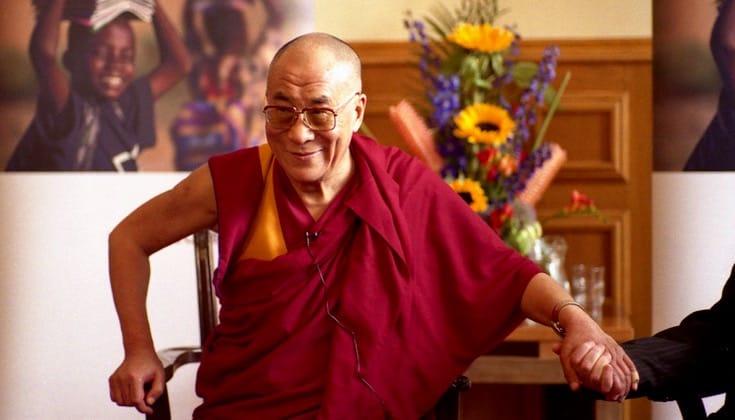The time for a force for good has come.
Each of us can join in that force for a better world, and mindfulness plays a crucial role.
The Dalai Lama has laid out a strategic map for this force, focusing on the good each of us can do. There are three steps: First, gain inner composure. Second, follow an inner rudder toward compassion. Third, Act now, in whatever way we can.
Each of us has tools for helping to change the world in a better direction.
Mindfulness, of course, offers a powerful method for that inner calm and clarity. The best research shows that from the beginning mindfulness strengthens concentration and lessens distractedness, so we can better focus on our goals. And mindfulness also calms the kneejerk amygdala, that trigger for reactions we regret later. So mindfulness practice gives us that inner foundation of mental strength.
As for compassion, here, too, research bears out the power of loving-kindness meditation – the natural accompaniment to mindfulness – to increase our concern for other others, up our generosity, and be more likely to put those feelings into action by helping someone in need. We engage life with compassion as a guide to what we do.
Then from that calm, clear and caring stance, the Dalai Lama says, act now. Each of us has tools for helping to change the world in a better direction. Each one of us has a personal sphere of influence; some of us have various positions of power; we may have special skills sets. Combine those with the particular way we are called to use them for the better.
There are five arenas which the Dalai Lama sees as critical for the future of our world:
Oppose Us-and-Them thinking.
In these times this seems a compelling place to put our energy. As the Dalai Lama notes, reaching out across divides can be healing. Decades of research on friendships between people in the ‘us’ and ‘them’ groups, especially among children, eliminate bias.
But let’s not focus all our energies there. Other wounds to heal:
The environment.
“The Earth is our home, and our home is on fire,” the Dalai Lama says. Global warming has become the poster child, but there are eight global systems that support life on our planet, each of which sustains continual damage from daily human activities. The range of ways to help here range from eliminating petroleum-based plastics from our lives and the supply chain, to demanding clean air.
Oppose Injustice.
The very social order creates structural inequities. Working together to eliminate them can create a better future for everyone.
A More Humane Economics.
The growing gap between rich and poor, the Dalai Lama says, seems a “moral crime.” This gap has been at play, for instance, in the debate about health insurance – on many other countries health care is a universal right, not just for those who can pay. A humane economics means finding avenues to lessen the rich-poor gap.
Help those in need.
This one seems a no-brainer. But the ways to enact such help include not just giving direct aid – like a handout to a homeless person – but also helping them help themselves – for example, job training.
Educate the Heart.
The world’s future is in the hands of our children. An education that includes mindfulness and caring will give the young tools to naturally act toward a better society.
Finally, act now, in whatever way you are called to. Otherwise the toxic forces at loose today will define our time. But each of us acting in our own way can together create a stronger force for good.

